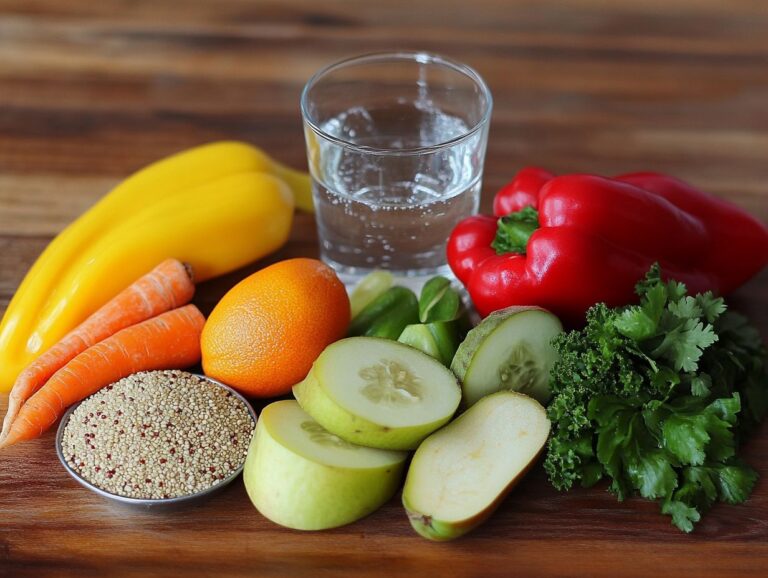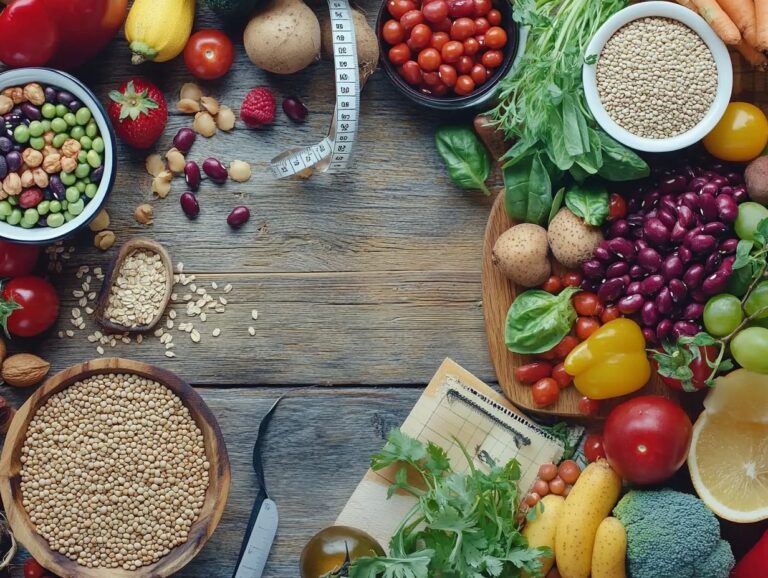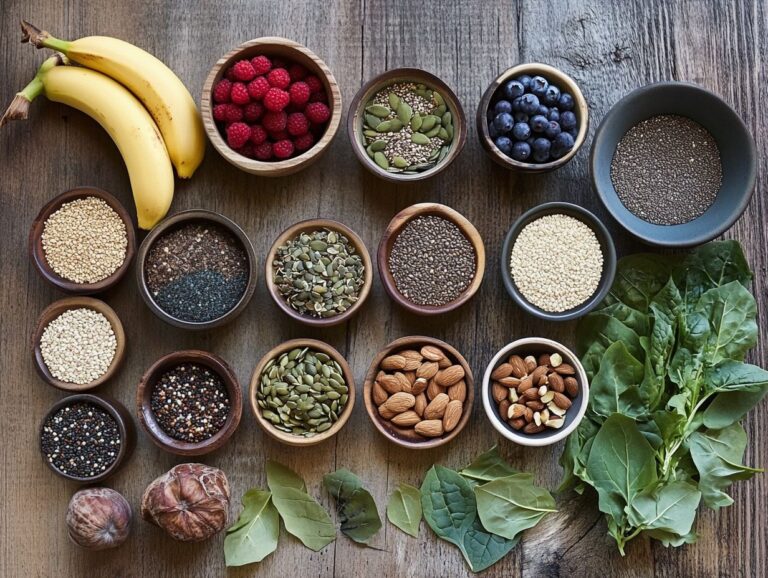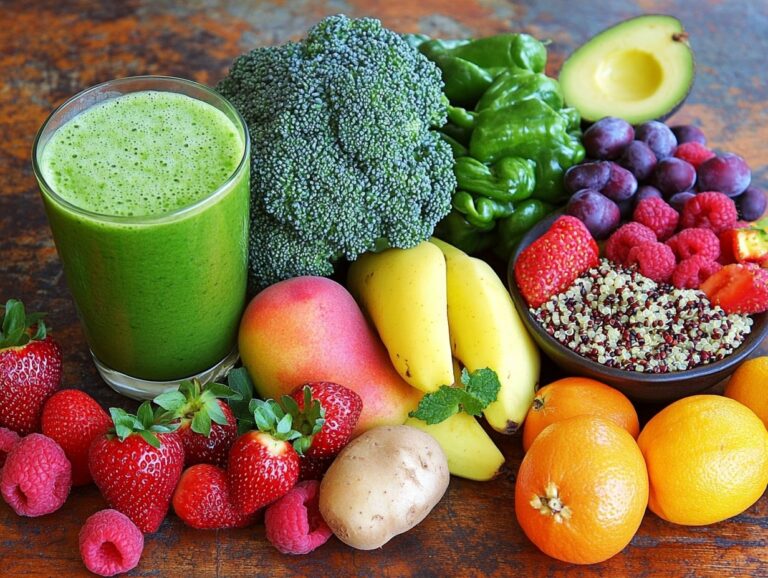A vegan bariatric diet is a specialized dietary regimen designed to provide the necessary care and nutrition for patients recovering from weight loss surgery, all while honoring their ethical and environmental values. This guide will explore what a vegan bariatric diet entails, outline its benefits, and offer meal planning strategies that meet essential nutritional requirements. It will cover the best sources of protein and fiber, as well as foods to avoid.
What Is a Bariatric Diet?
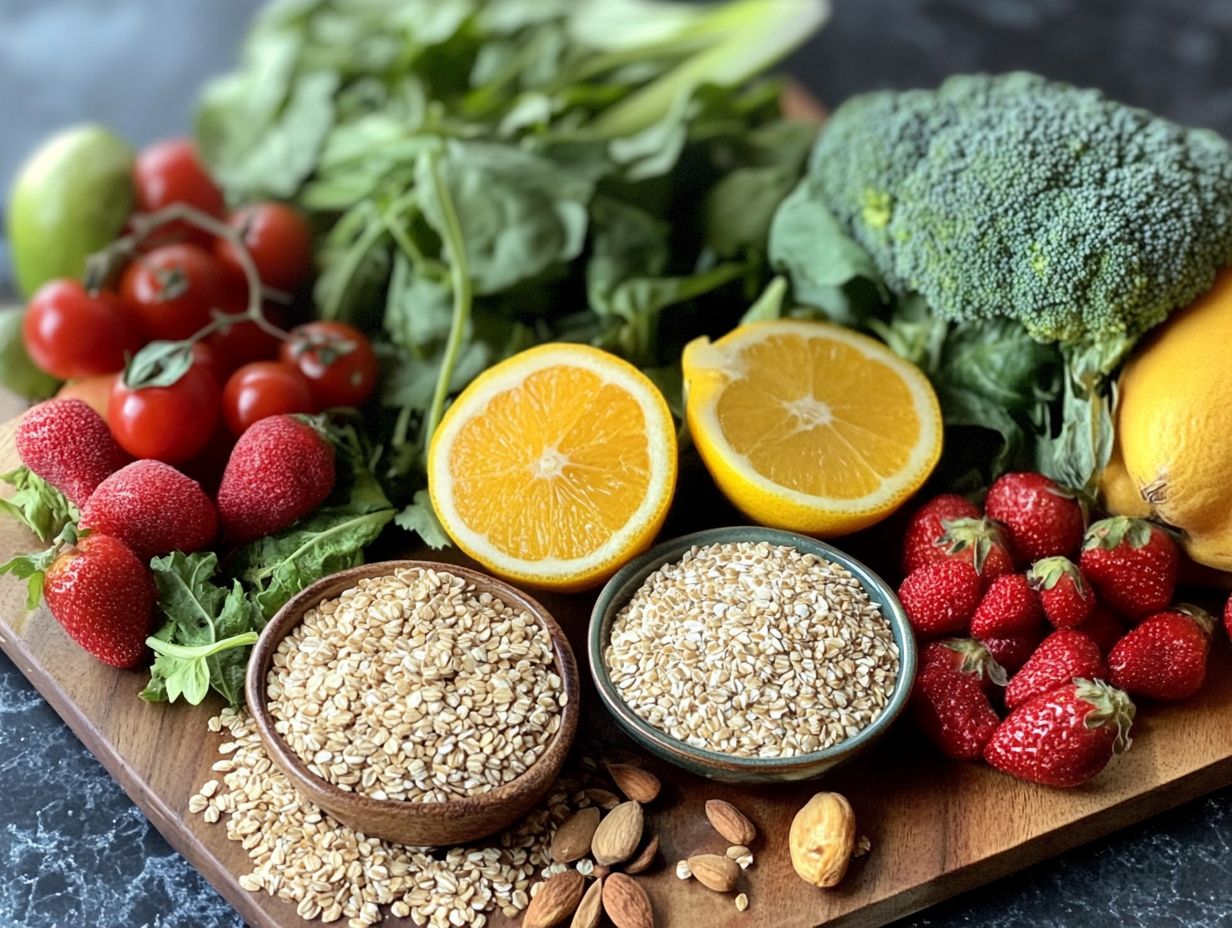
A bariatric diet is a specialized nutrition plan tailored for individuals undergoing bariatric surgery, which includes weight-loss procedures such as Roux-en-Y gastric bypass and gastric sleeve surgery.
This diet is designed to facilitate effective weight loss, promote healing, and ensure long-term success. It emphasizes the incorporation of high-protein foods, optimizes nutrient absorption, and helps establish healthy habits that are essential for maintaining weight loss after surgery.
What Is a Vegan Bariatric Diet?
A vegan bariatric diet is a plant-based nutrition plan tailored for individuals who have undergone or are scheduled to undergo bariatric surgery. This high protein diet emphasizes high-protein foods while excluding all animal products.
Plus promoting weight loss, it meets specific nutritional requirements, thereby reducing the risk of nutrient deficiencies. Furthermore, it contributes to improved digestive and psychological health following surgery, which is essential for maintaining emotional well-being.
What Are the Benefits of a Vegan Bariatric Diet?
A vegan bariatric diet offers numerous benefits, including improved digestive health, enhanced emotional well-being, and a reduced risk of nutrient deficiencies, in addition to supporting weight loss.
By prioritizing plant-based protein sources and ensuring a diverse range of nutrients, this diet facilitates recovery after surgery and promotes healthy habits that encourage long-term success.
One major advantage of a diet rich in whole, minimally processed, fiber-rich foods is the increased nutrient absorption it provides. High-fiber foods, such as legumes and whole grains, aid digestion, helping to alleviate the bloating and discomfort that often accompany post-bariatric surgery diets.
Furthermore, a well-rounded vegan diet that is rich in antioxidants and vitamins can enhance emotional health, as research has shown a connection between plant-based diets and lower rates of depression and anxiety.
For instance, increasing omega-3 fatty acids from sources like flaxseeds and walnuts may improve mental health, while colorful fruits and vegetables supply essential nutrients that benefit physical health, creating a holistic approach to recovery and overall well-being supported by a dedicated bariatric team.
What to Eat on a Vegan Bariatric Diet?
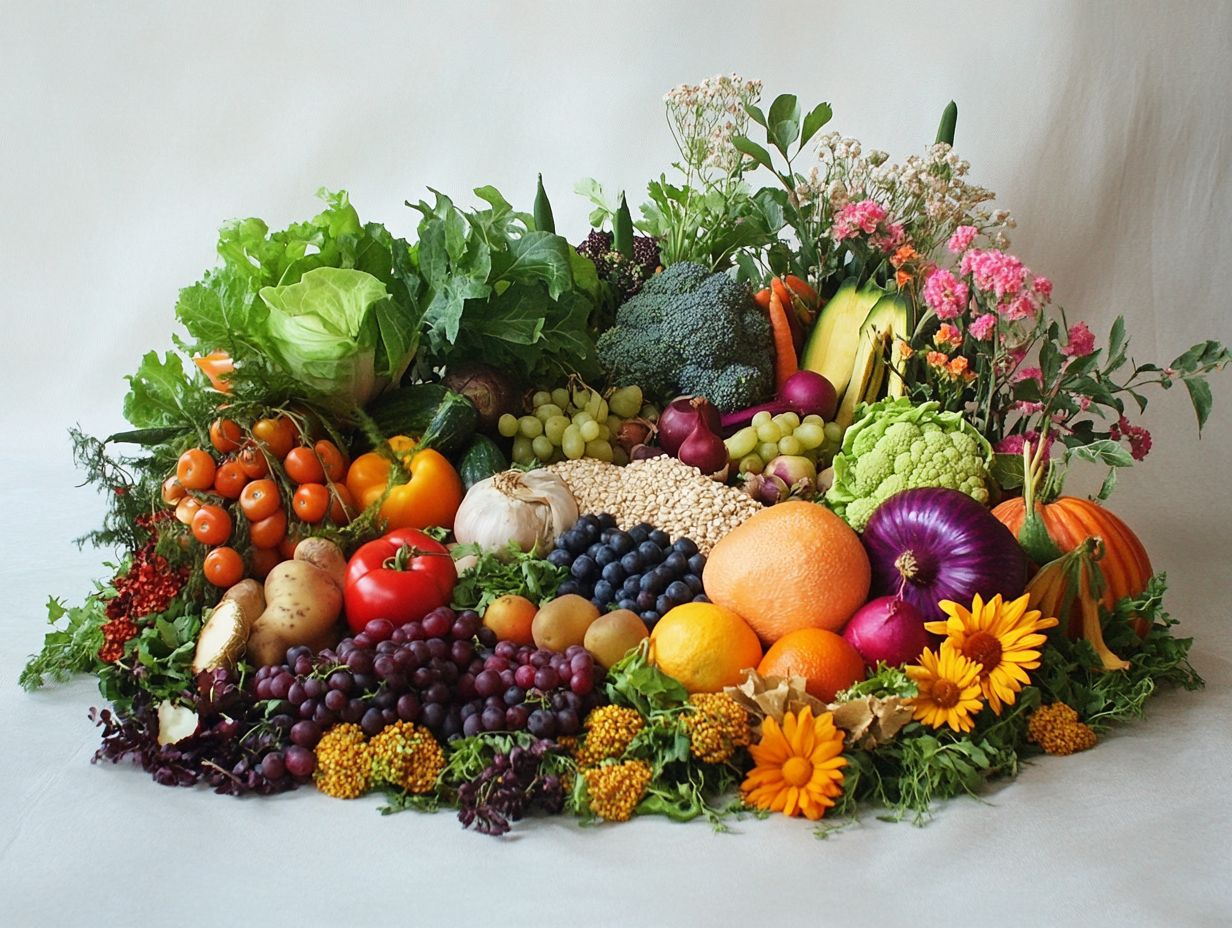
A vegan bariatric diet should emphasize protein-rich, low-calorie, and easily digestible foods. This approach ensures that patients meet their protein requirements while adhering to the smaller portion sizes typical of a post-bariatric diet.
Meal plans should incorporate a variety of plant-based protein sources, such as:
- Tofu
- Beans
- Legumes
Along with high-protein grains and soft foods. Additionally, diverse cooking methods can be used to modify the texture of dishes.
What Are the Best Protein Sources for a Vegan Bariatric Diet?
The best protein sources for a vegan bariatric diet include a variety of plant-based options such as tofu, beans, legumes, and high-protein grains, all of which help meet the increased protein needs following surgery.
Incorporating protein powder and nutritional yeast provides easily digestible alternatives that enhance protein intake and contribute to overall nutrient absorption. By including these protein sources, individuals can support healing and recovery while also maintaining satiety, which is essential for effective weight management.
For example, a hearty chickpea salad loaded with vegetables can serve as a satisfying lunch, while a quinoa bowl topped with roasted vegetables and drizzled with tahini makes for a nutritious dinner. Smoothies made with pea protein powder and fortified plant-based milk, such as almond milk, can be a great breakfast option, ensuring that even the most demanding post-surgical protein requirements are met.
These meals are crucial for ensuring that a balanced vegan diet promotes health and sustains energy levels effectively, aligning with the dietary guidelines recommended by the Temple Bariatric Program.
What Are the Best Vitamin and Mineral Sources for a Vegan Bariatric Diet?
A vegan bariatric diet can provide healthy sources of vitamins and minerals; however, it is essential to include nutrient-dense foods and use supplements to ensure adequate intake of key nutrients such as vitamin B12 and calcium, which are more likely to be deficient in a plant-based diet.
To maintain sufficient levels of these nutrients, individuals should incorporate fortified foods and a bariatric-specific multivitamin into their diet. After bariatric surgery, it is crucial to closely monitor nutritional choices, as nutrient absorption may be impaired, and calcium supplementation might be necessary to aid in the healing process.
Vegan Sources of Key Nutrients on a Vegan Bariatric Diet:
- Vitamin B12 (Cobalamin): Sources include nutritional yeast, fortified plant milk, fortified breakfast cereals, and B12 supplements.
- Calcium: Sources encompass fortified tofu, fortified plant milk, leafy green vegetables (such as kale, collards, turnip greens, and broccoli), almonds, tahini, chia seeds, and vegan calcium citrate gummies or liquid.
Calcium Absorption: Vitamin D is necessary for calcium absorption and can be obtained from fortified foods as well as through sun exposure. According to a study published in the International Journal of Obesity, a balanced diet is essential for proper recovery and healing after bariatric surgery.
Therefore, bariatric patients should develop a meal plan that includes a variety of these foods, perhaps in the form of smoothies or hearty grain bowls, to meet their nutritional needs while still enjoying delicious food.
What Are the Best Sources of Fiber for a Vegan Bariatric Diet?
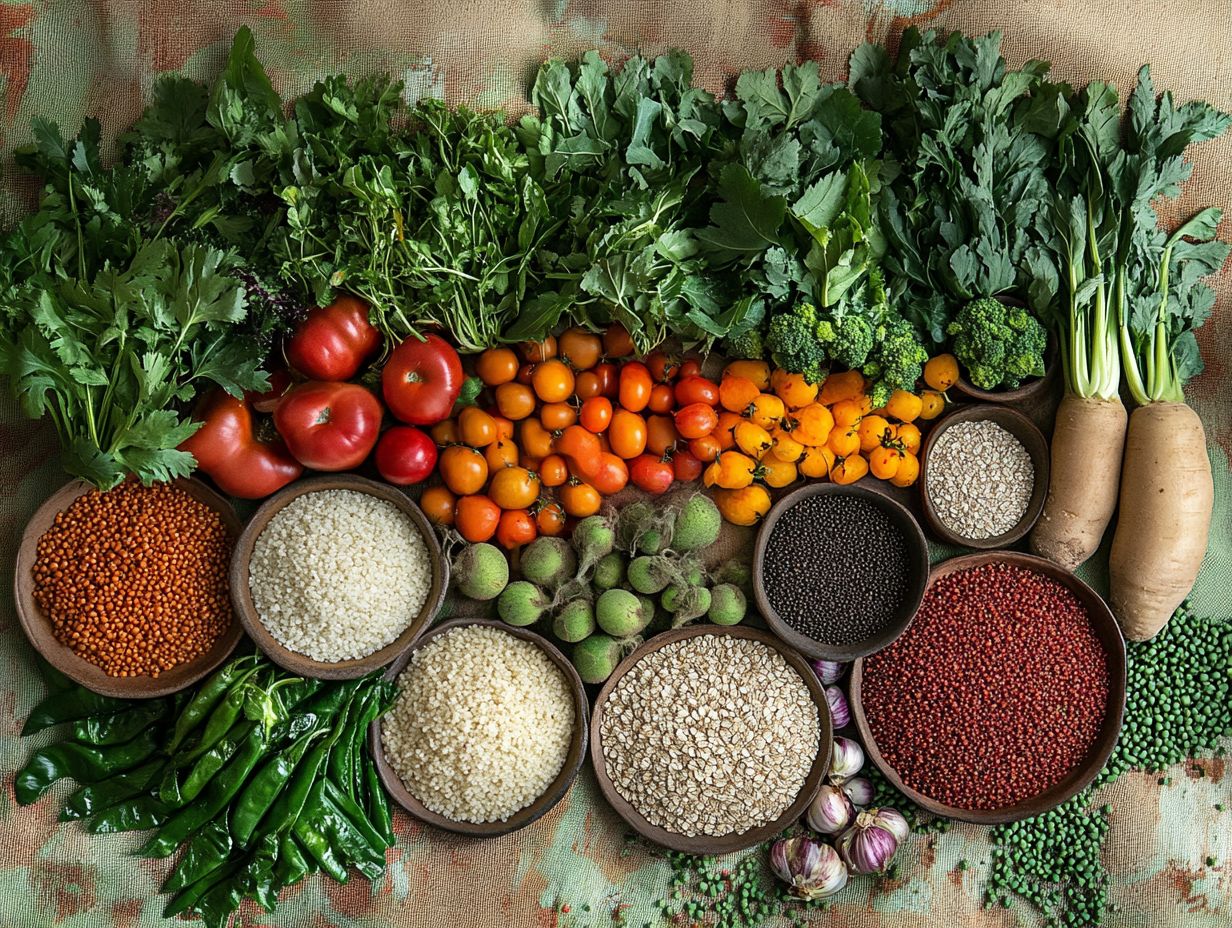
The best sources of fiber in a vegan bariatric diet include whole grains, fruits, vegetables, and legumes. These foods not only promote digestive health but also provide a sense of fullness and help regulate blood sugar levels. By including more high-fiber foods in a vegan bariatric diet, individuals can expand their food choices and aid in weight maintenance after surgery.
Fiber plays a crucial role in digestion by helping the body regulate bowel movements and preventing constipation. Additionally, it aids in weight loss by creating a feeling of fullness, which can help control hunger.
Some excellent high-fiber food sources are:
- Oatmeal
- Black beans
- Lentils
- Broccoli
- Berries
For meal ideas, consider starting your day with fiber-rich oatmeal topped with fruit and chia seeds, or enjoy a salad with chickpeas, avocado, and assorted vegetables for lunch.
It is important to increase fiber intake gradually to allow the digestive system to adapt and minimize discomfort, ensuring a smooth transition to a healthier diet.
What to Avoid on a Vegan Bariatric Diet?
On a vegan bariatric diet, it is important to avoid foods that may lead to complications after surgery, as well as those that can negatively impact emotional health.
This includes high-sugar and high-fat foods, which can slow down weight loss and jeopardize overall health.
Making the right food choices is essential for supporting the recovery process and reinforcing healthy behaviors that are crucial for achieving long-term success.
What Foods Can Cause Complications After Bariatric Surgery?
Complications after bariatric surgery can arise from certain foods, particularly those high in sugar, fat, and calories. On a vegan bariatric diet, it is advisable to avoid processed foods, sugary snacks, and high-fat plant oils.
Consuming these types of foods may lead to complications such as dumping syndrome, nutrient deficiencies, and suboptimal weight loss outcomes. Instead, choosing nutrient-rich foods allows individuals to enjoy meals that aid in recovery and promote long-term weight loss.
Incorporating whole grains, legumes, fruits, and vegetables into meals ensures that patients receive essential vitamins and minerals while avoiding excessive calorie intake. Also, it is important to avoid after surgery any foods that might aggravate the digestive system, such as high-fat or spicy foods.
For instance, rather than indulging in typical snack foods, one could choose apple slices with almond butter or homemade hummus with carrot sticks. Opting for nutrient-rich plant-based foods underscores the importance of careful food selection, ensuring that each meal not only fosters healing but also supports consistent weight loss.
What Foods Should Be Limited on a Vegan Bariatric Diet?
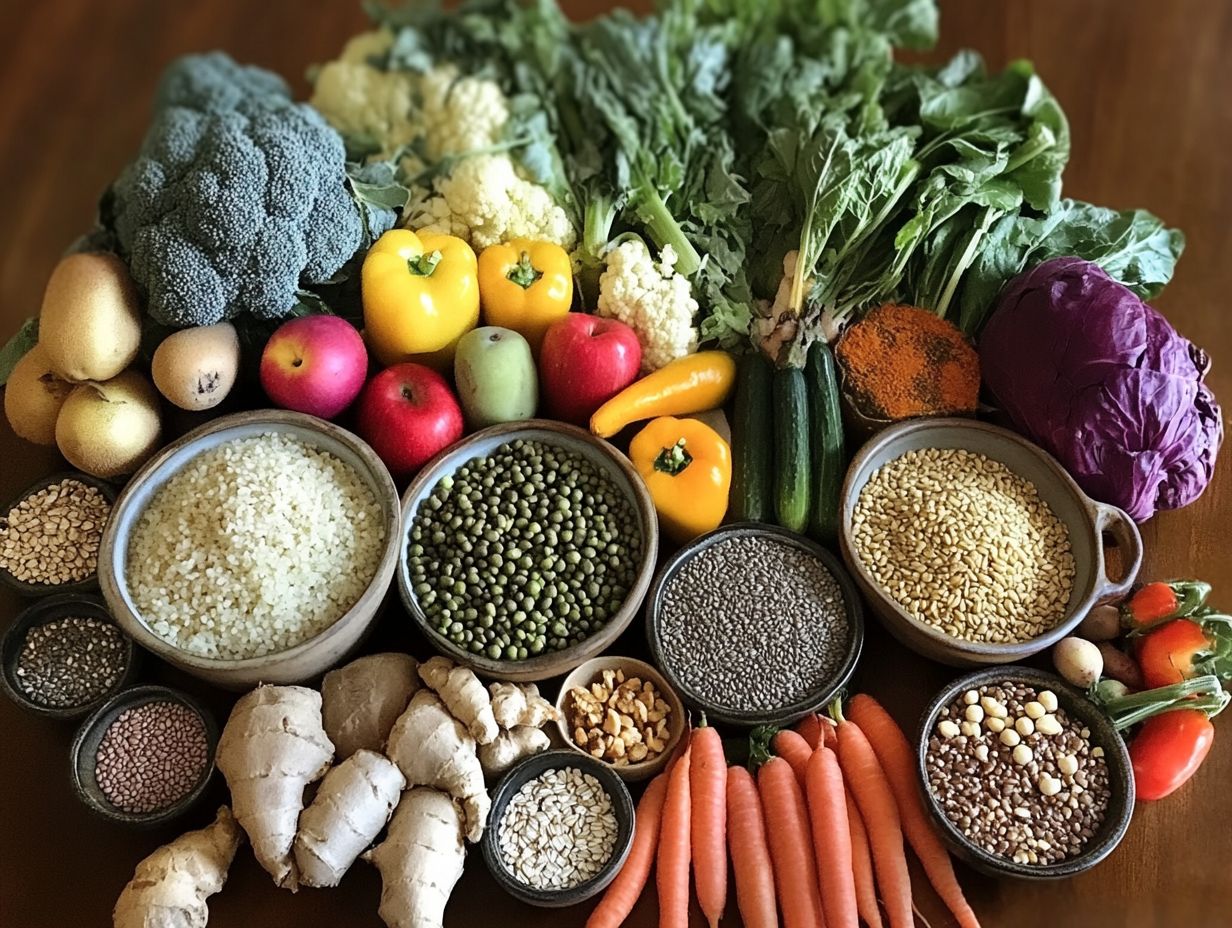
On a vegan bariatric diet, it is important to limit foods that offer little nutritional value, such as refined grains and highly processed snacks, as they can contribute to emotional eating and hinder weight-loss goals. By focusing on high-quality, nutrient-rich foods, patients can enhance their overall well-being while maintaining appropriate portion sizes.
Additionally, sugary drinks and snacks should be limited on this diet, as they often contain empty calories that do not satisfy hunger and may increase the risk of unhealthy weight gain. Instead, individuals should prioritize whole foods such as beans, fruits, and vegetables, which provide essential nutrients and help keep them feeling full. Incorporating a regular meal replacement routine, such as protein shakes, can also assist in achieving protein needs and managing food intake effectively.
Using smaller plates and bowls can create the illusion of a fuller plate, aiding in portion control. Furthermore, planning meals and snacks in advance can be an effective strategy for managing portion sizes, allowing individuals to make intentional choices about their food intake and avoid certain foods after weight-loss surgery.
This approach not only fosters a healthier relationship with food but can also improve emotional well-being, aid in surgery preparation, and support long-term weight management.
How to Plan Meals on a Vegan Bariatric Diet?
Meal planning for a vegan bariatric diet involves creating structured meal plans and ideas that emphasize high protein intake, balanced nutrition, and appropriate serving sizes to support weight loss, digestive health, and recovery after post-bariatric surgery.
Utilizing grocery lists, meal replacement options, and straightforward cooking methods can simplify the meal planning process, making it easier to develop daily vegan bariatric meal ideas that incorporate a diverse array of healthy plant-based ingredients, including tofu, beans, and legumes.
What Are the Potential Risks and Side Effects of a Vegan Bariatric Diet?
A vegan bariatric diet can be beneficial; however, it also carries risks and potential side effects, such as nutrient deficiencies, vitamin B12 deficiency, and digestive issues, which can occur with improper planning.
It is essential to recognize any problems related to emotional health, nutrient absorption, or sustainability early on to ensure that a vegan bariatric diet remains nutritionally adequate and aligns with bariatric nutrition guidelines.
How to Ensure Adequate Nutrient Intake on a Vegan Bariatric Diet?
The nutrient needs of a vegan bariatric diet can be effectively met through careful planning that addresses vitamins, minerals, protein sources such as protein powder and almond milk, and protein requirements.
Regular consultations with a Temple dietitian are essential to assess dietary choices, address the need for calcium supplementation and a bariatric-specific multivitamin, and determine if further supplementation is necessary.
By focusing on nutrient-rich foods such as chickpeas, edamame, and high protein grains, and meticulously planning meals in accordance with specific dietary guidelines, individuals can significantly reduce the risk of deficiencies.
What Are Some Tips for a Successful Vegan Bariatric Diet?
Achieving success on a vegan bariatric diet involves implementing strategies that promote healthy habits, effective meal planning, and emotional stability throughout the weight-loss journey.
Key recommendations include:
- Creating structured meal plans with a focus on food texture and pureed diet options
- Experimenting with various cooking techniques and using cooking tools that make preparation easier
- Establishing a support system, possibly through the Temple Bariatric Program, to help navigate challenges
